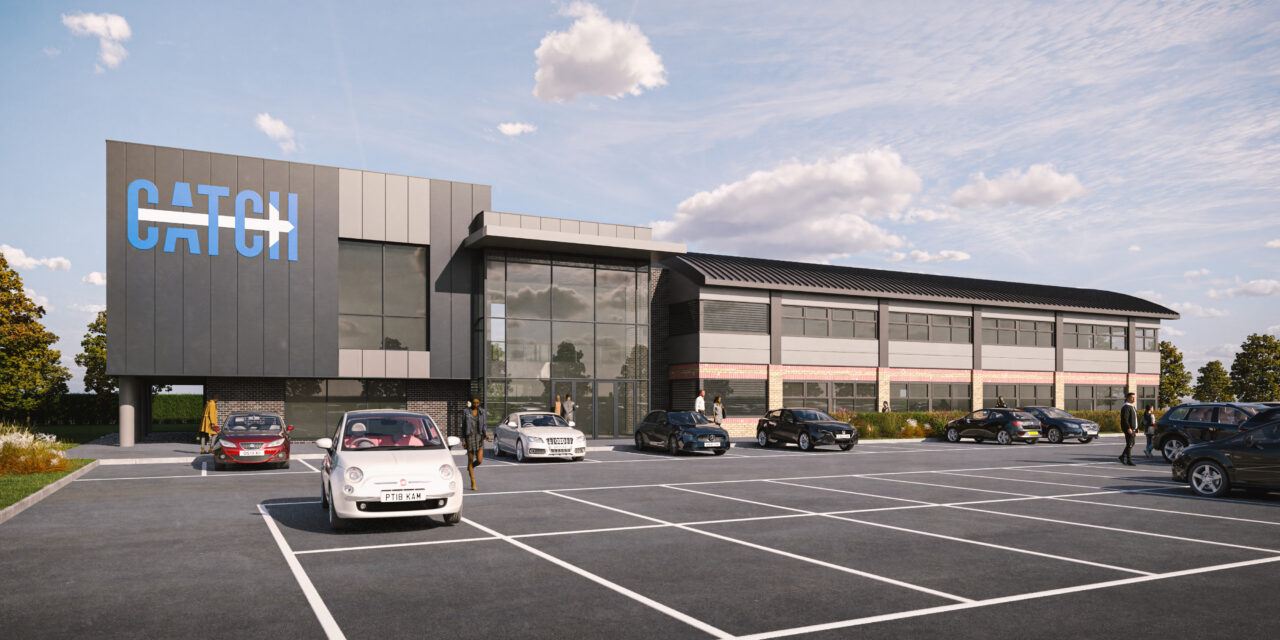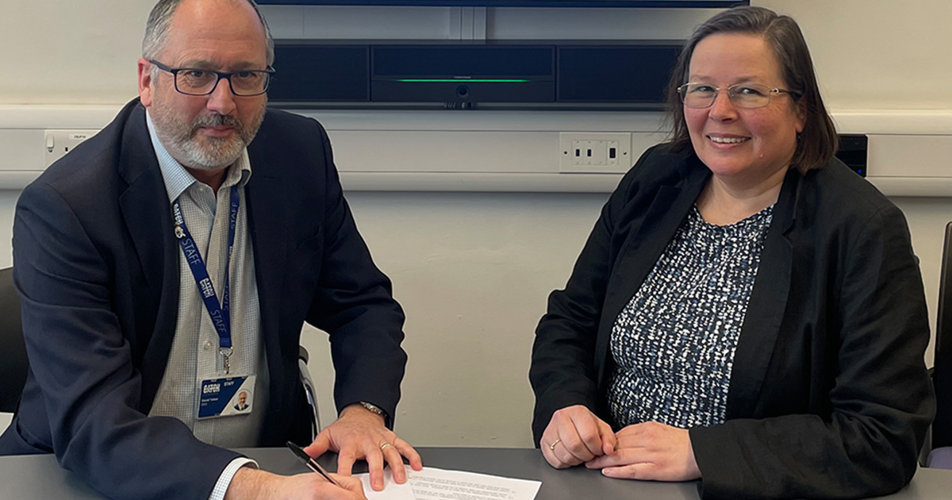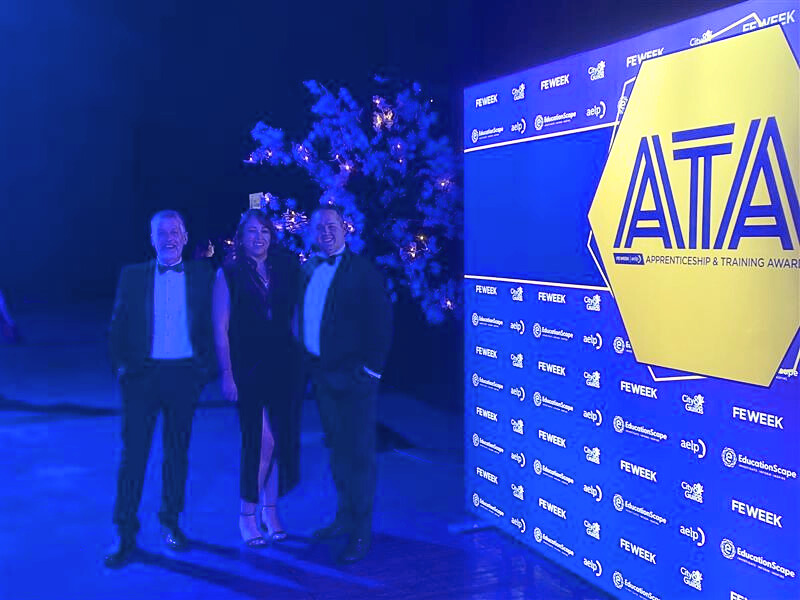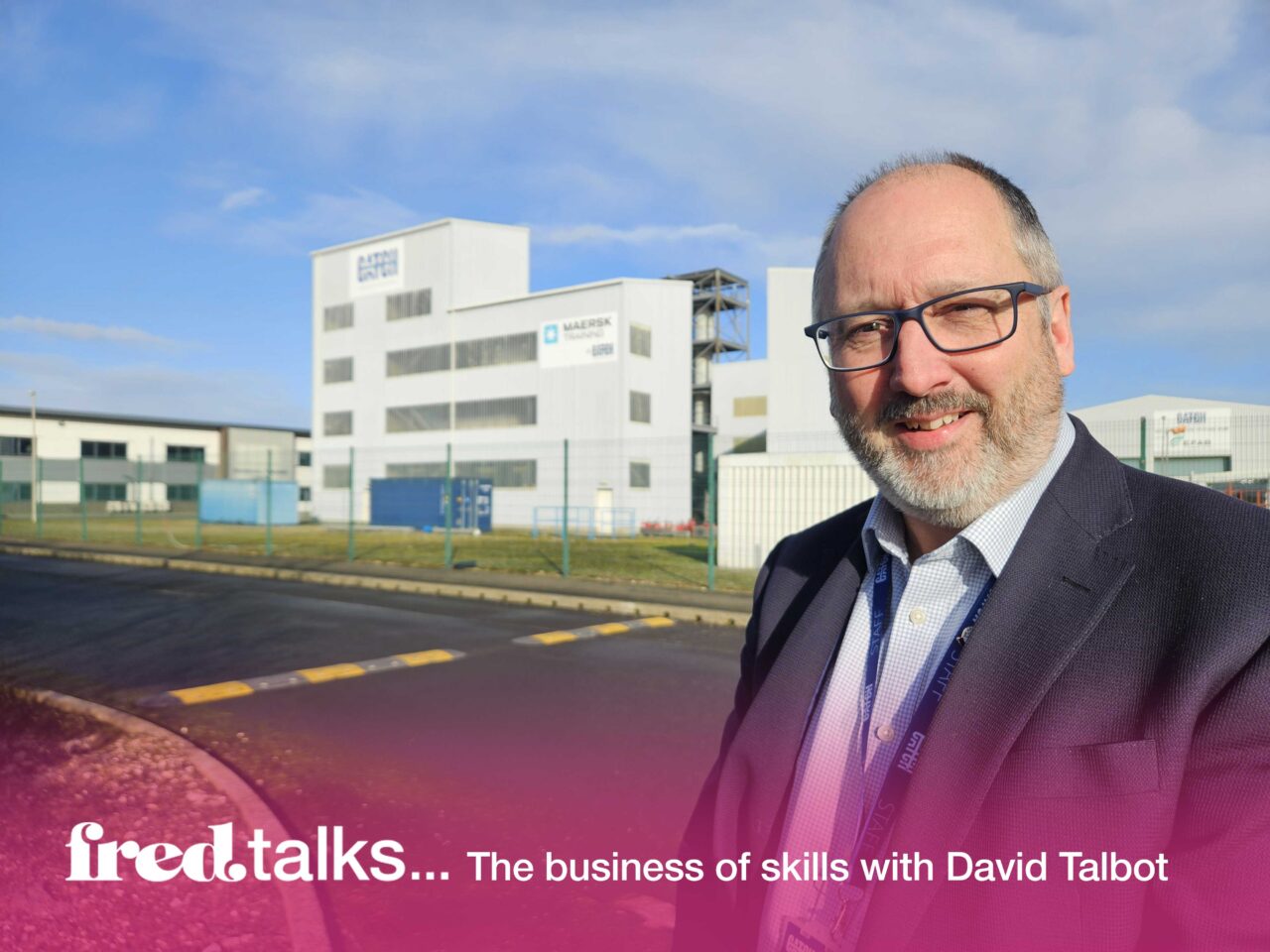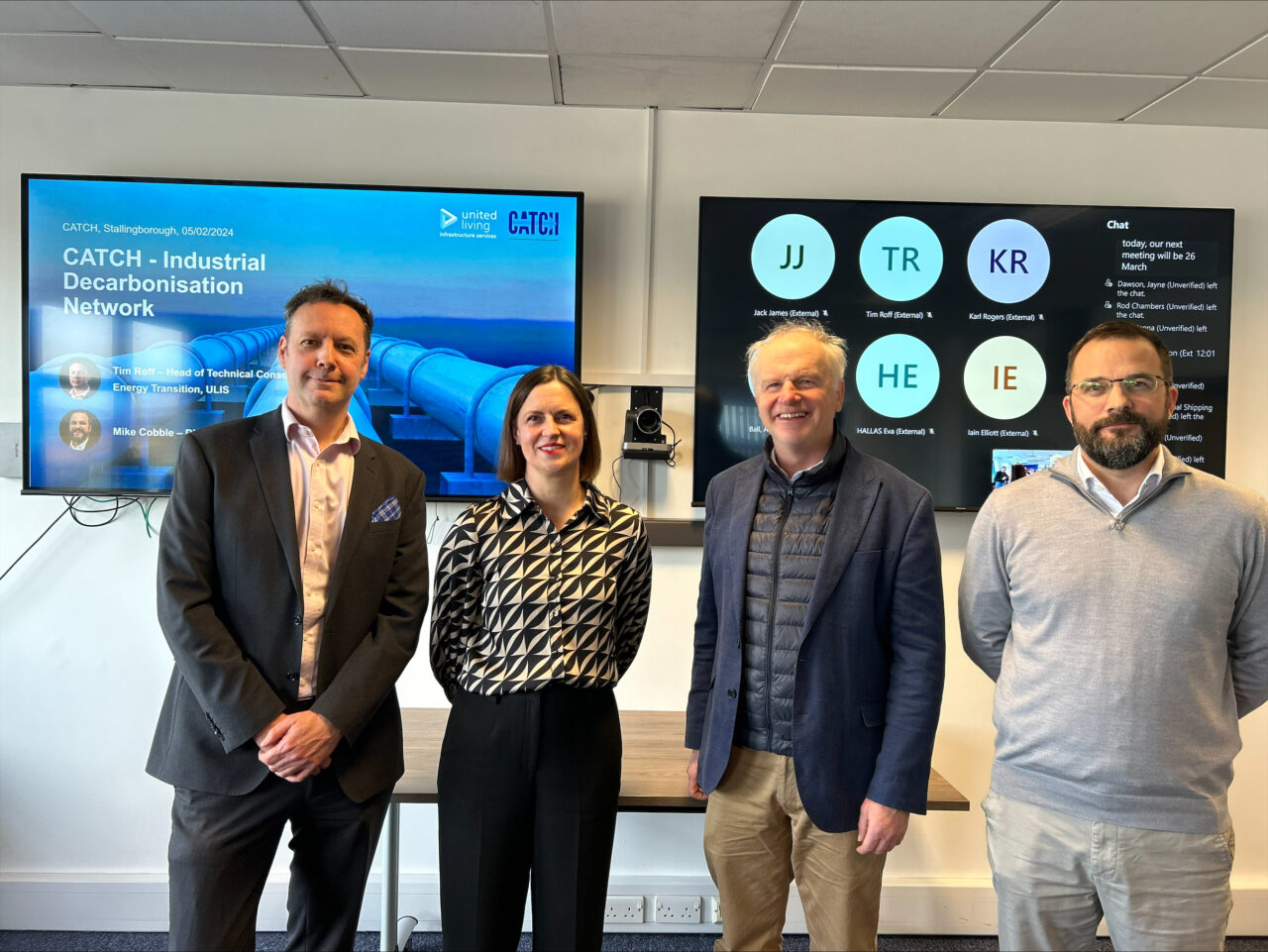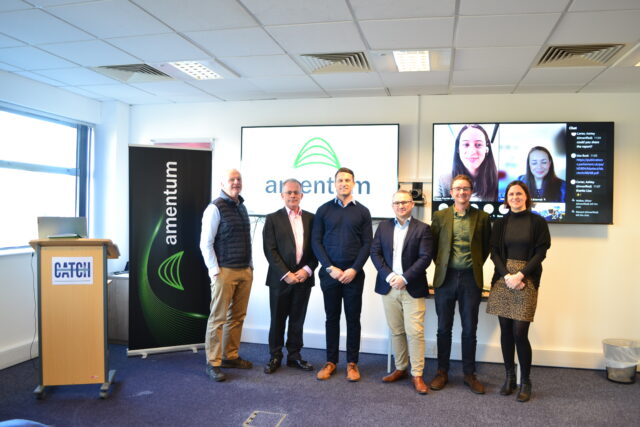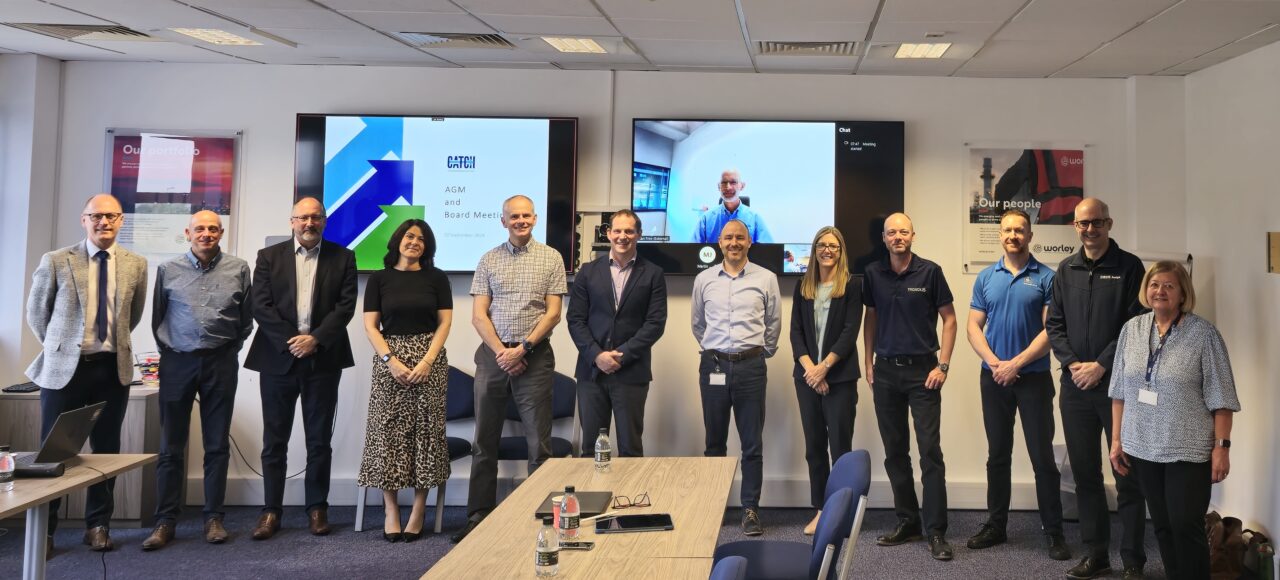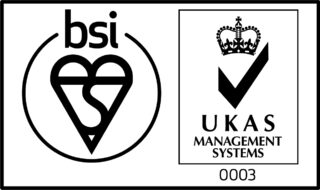Hulking Humber bank process plants need to clean their operations up. New infrastructure is required at an eye-blinking scale to bring in greener fuels and extract the harmful emissions currently belching out from the sky-piercing stacks, burying them deep below the near North Sea instead.
Net Zero goes well beyond offshore wind here in the second most carbon intensive industrial cluster in Europe. And while polarised policies and pounds in the public’s pockets or funding pots get the headlines on the meandering route to a planet-friendlier future, it is the people it needs to deliver where a real shortfall is seen.
Successful decarbonisation, not de-industrialisation, is the prize the region has in its sights, and the critical mass is as much about the trades as it is the abatement of those fossil fuel fumes. Projects worth upwards of £18 billion are being eyed – jobs in the tens of thousands. Yet mechanical fitters, pipefitters, process engineers, project managers, designers, riggers and site managers are among the most difficult roles to fill, with ECITB research released last week revealing three quarters of employers are already struggling, above the national average.
Looking to solve this part of the equation, while supporting the work to win over hearts and minds about the Humber’s case for hydrogen, carbon capture and storage and further skills investment, is David Talbot. Chief executive at industry training centre Catch, he has just entered his 10th year at the helm of the Stallingborough facility.
When he joined it was a member organisation and landlord to other training providers, with a process unit to simulate with water and donated kit what was happening in closed environments in the near neighbourhood. It started life under the name Humber Chemical Focus, evolving to take the title of the facility, seen as unique to an industry keen to address that age-old skills gap – ever present without the demand now forecast by a project pipeline packed with ambition.
Mr Talbot, a former RAF squadron leader, had been a key figure in the emergence of BAE Systems’ Aircraft Maintenance Academy at Humberside Airport, and headed along the A180 to start the transition from landlord to training organisations, to an organisation training its own.
“The transition happened fairly quickly, Mr Talbot recalled. “In 2017 we set up our own provision with Catch Skills, adult skills provision in regulatory health and safety-type training, and it just took off from there.”
Catch was admitted to the Apprenticeship Register in 2021, and grand plans for the end of the decade we now sit in the midst of began to emerge.
“We, as Catch, delivered the Humber Industrial Cluster Plan – the roadmap to Net Zero – on which we worked with HEY LEP and key employers around the region, who became partners. It saw the carbon capture cluster sequencing projects Viking CCS and Humber Zero come together, and come to us, in what has now become quite a pivotal moment for Catch; to ask what it would take to go from 100 apprentices a year to 1,000.
“That was the headline message. And true to their word, that partnership of the key emitters, coupled with the Viking CCS programme, has led to a £1.2 million investment from industry, and on what we are now starting to work on, £4.5 million funding from Humber Freeport and £300,000 from ECITB, which has led to a whole phased programme that will get us to that 1,000.”
That programme started with a welding hub “something we could achieve quickly” which saw a fabrication workshop refurbished, providing the largest capacity for such training in England, with 79 bays. “It is a real game changer in terms of the regional output for welding, fabrication and pipefitting trades,” Mr Talbot said.
That’s just the start. Catch is now in the middle of a fifth phase of growth since opening in 2006. A new build Renewable Energy Training Centre will support wind turbine technicians, but the mechanical skills on offer will benefit all energy intensive industries on Net Zero journey.
It is with planners for the last plot on the current footprint, with an Industrial Decarbonisation Centre also in planning – a redevelopment of the original administration building to deliver networking, events and conferences, all encouraging the sharing of industry best practice. It will boast a 120-seater capacity theatre-style capability, with collaboration areas. Virtual and augmented reality will complement the hands-on facilities Catch offers.
“It is really exciting, it will help us to support the region to get to Net Zero, through support for inward investment, support for innovation and an expansion of our membership activity to deliver even more,” Mr Talbot said.
The final element is a brand new centre on the greenfield site, adjacent, with ambition to be up and running in 2029. The £60 million National Net Zero Training Centre concept was unveiled in September 2023. “That is the big prize, and there is a lot of work to go in on that one,” Mr Talbot said. “We’re just starting to plan that, and that’s a long-term aim.
“We’ve not stood still here, we can’t. We’ve already seen four phases of growth, and each time we have had a new phase, we have filled it and seen a need to expand further. For me that confirms our model is right.
“The message has been clear for some time. The Humber is the biggest industrial cluster in the UK, some 20 million tonnes of carbon are emitted every year, and we have got something like £20 billion of investment identified. You can’t build that infrastructure, operate it or maintain it, without the workforce. That’s what has been identified.
“We need 20,000 new engineering / construction trades people to build the infrastructure to get us to Net Zero. It is a transient workforce. If we don’t build that workforce now, we can have the best projects in the world, but we won’t be able to build them, and that’s what we’re here to support.”
And here is the dilemma. The Catch 22 perhaps, here in early 2025.
“There are great plans waiting for the green light,” Mr Talbot said, referring to the Humber’s overarching vision document. “A lot of the people we are developing will not work directly for the investing company though. Some will, but many will become part of the contractor workforce. Contractors cannot sign up to move ahead until the emitter has the green light. We are all waiting for the green light, getting that tier of contractors signed up, then we can deliver, but that means we are behind where we need to be. We are trying to pump prime the whole system here with that programme from industry, which is fantastic, but it is difficult and there are challenges.
“Our programme isn’t just about building facilities. We have that engine to deliver new entrants to industry, and not just apprentices. We also need to engage young people, make sure our message is getting out that we have some fantastic jobs, fantastic industries with full careers, that with a great trade behind them are well renumerated. We’re getting that out and have invested in a team to do that.
“There’s also the complexity of delivering an apprenticeship. It makes it difficult. There can be headcount issues, there will always be contractor/client relationship issues, and there is just a lot of red tape around delivery. We have got to look at different ways of solving that and helping employers take on the workforce that is needed.”
Awareness is working. “We are certainly getting enough people applying for our apprenticeships. We have 150 available at the moment, and we are getting 400 to 500 applications for those.” Diversity is increasing too, helped by programmes such as Women into Welding, showcasing potential and role models already out there.
The number of females enrolled across the past three years’ apprenticeships looks set to be eclipsed in the 2025 intake alone. “It has been an incredible period,” Mr Talbot said, buoyed by the recent £1 million ‘green skills’ pledge from Westminster to northern Lincolnshire too.
There’s also May’s regionalisation of adult education budgets to ponder too, with mayoral combined authorities coming to Greater Lincolnshire and Hull and East Yorkshire.
“I definitely see devolution as a positive for the region, for this industrial belt around the Humber. We can set our own agenda, and it is important there are a number of cross-over organisations, the likes of Future Humber, Humber Marine & Renewables and critically the Humber Energy Board and Humber Freeport. They are absolutely key, and we will be working together and sharing that agenda. We need to make sure the voice of industry is joined up and heard.”
It isn’t all plain sailing when it comes to political intervention though, as the Budget has proven.
“It is a very difficult environment where you have a cap on what you can sell, yet all your supplier costs and employment costs are going up. It does make it difficult to deliver, and it makes it difficult to have a differentiator. For example, we offer added value courses. Our apprentices go out oven-baked ready to go. We will have delivered working at height and working in confined space training, but all of that eats into that very small margin we have got. It gets harder and harder to deliver because the cap doesn’t increase, and in one of the apprenticeships it has actually reduced. They should all be going up with inflation.”
But the funding was a shot to the arm, as detail is awaited, as the team – grown from 16 to 80 in Mr Talbot’s tenure – look to widen the offering further, embracing supporting trades to those at the forefront of engineering a clean future.
“That was great news,” Mr Talbot said. “It is important to understand what that really means and ensure that is used as efficiently as possible to make sure we do deliver that growth in the energy sector.
“The messaging is great that skills are important to deliver the Net Zero agenda.”
Industry insight: James Ward, managing director, F.E.S. (Ex) Ltd.
Electrical, instrumentation and mechanical services contractor specialising in process safety, integrity and compliance – with expertise in explosive atmospheres in industrial settings. Based in North East Lincolnshire.
How I see the skills situation:
The future demand for skilled trades in the electrical and instrumentation industry is set to surge, particularly in regions like the Humber. The ambitious infrastructure projects on the horizon will require a significant influx of skilled professionals, far exceeding the usual annual intake needed to replace the retiring workforce in existing operations and contracting companies.
At F.E.S. (Ex) Ltd, we are enthusiastic about the opportunities this presents. We believe we can contribute to this demand. However, we are also acutely aware of the scale of this and the need for businesses to collaborate more than ever before. Our focus remains on ensuring that our workforce is equipped with the latest skills and knowledge to stay ahead in this rapidly evolving industry, along with continued investment into our apprentices.
Biggest challenges? Industry perception and competition for talent. Many young people may not see E&I trades as attractive career options compared to other fields. This requires us to actively promote the benefits and opportunities within the industry, highlighting career growth, job stability, and the potential for innovation.
With multiple industries vying for skilled workers, we must offer competitive salaries, benefits, and career development opportunities to attract and retain top talent.
Why is the industry rewarding? The E&I industry spans various sectors, including energy/renewables, manufacturing, construction, and technology. This diversity allows professionals to explore different career paths and specialisations, keeping their work dynamic and engaging.
It is at the forefront of technological advancements too. Working in E&I means being involved with cutting-edge technologies such as automation, smart grids, and renewable energy systems. This constant innovation provides a stimulating work environment and opportunities for continuous learning
With the growing need for infrastructure development and maintenance, the demand for skilled E&I professionals remains high. This translates to job stability and numerous employment opportunities across different regions and industries.
There are also ample opportunities for career advancement within the E&I industry too. Companies like F.E.S. often provide training programmes, certifications, and professional development courses to help employees enhance their skills.
Industry insight: Richard Law, director of business development for Technica Ltd and managing director of Technica Measurement.
Multi-discipline engineering design, management and construction provider, specialising in control, functional safety, fiscal metering and flow measurement, headquartered in Grimsby.
How I see the skills situation:
It is widely accepted that the demand for people is going to be a key problem for the industrial and energy clusters across the UK, and the Humber region is no different. The push for a greener future will be underpinned by some of the largest infrastructure construction projects which collectively have not been seen in this country since the Industrial Revolution. Couple the requirement for people involved in the construction of these projects with the need to replace natural outflow of personnel who will still be required to operate and maintain our legacy infrastructure, and it is clear to see that finding the right number of skilled people is a significant problem.
Biggest challenges? Technica and our specialist subsidiary, Technica Measurement, are ideally placed to play a key role in both the development of new projects such as hydrogen networks, carbon capture and other novel Net Zero projects, as well as supporting existing infrastructure both in the Humber and across the UK, but to do so and to realise this, we need to have the people with the right skills.
Through my work as a director of Technica Group and as a board member of the ECITB, it is clear that we need to think differently to address the skills shortage. Recognising the connected nature of some competencies across the industrial sector and making it simpler to transfer from one industry to another, or opening up work-ready programmes to offer training and employment to ex-offenders – and those who have been out of work long term – are ways in which we can do things differently.
We must double down on our efforts to attract young people too. Having met with the ECITB’s Innov8 team, who represent the younger generations within the engineering industry, it is clear today’s school leavers are not going to be attracted simply by the offer of a job. They want to feel engaged, see a clear career path with real opportunity for progression, undertaking meaningful work and gaining rewards which are more than simply salary-related.
The work of regional skills hubs, and specifically at Catch within the Humber, is going to be key to opening up these career routes, ensuring we stand the best possible chance of overcoming this significant hurdle.
Why the industry is so rewarding?
There can be a stigma attached to engineering careers and an incorrect perception that the work is perhaps boring. Coming from an engineering family, I have been around engineers all of my life, but from a career spanning almost 30 years, I can honestly say that no two days have ever been the same and I have had the pleasure to work with a diverse, hardworking and dedicated group of individuals, who have a silent pride in what they do.
There’s real social mobility. Growing up in an ex-mining town in South Yorkshire, I honestly thought that going to university was beyond my reach, but by being accepted onto a formal engineering training scheme, I went on to gain a Bachelors and then a Masters Degree in Engineering, have travelled all over the world and now find myself as a director of a business which plays a critical role in ensuring that we are able to heat our homes, that we have electricity, and that our industry has the energy it needs to keep the UK working. Most importantly, I am not unique, and within the industry and within Technica – from our Group Managing Director to many more of our employees – all entered the profession through formal training schemes.
Fred understands business. Fred understands the challenges, the opportunities, and the sectors that matter most. We provide director-led consultancy and marketing services across all forms of creative communications. Is it time for you to talk to Fred?
Email dave@fredmarketing.co.uk or call 01482 227227.


